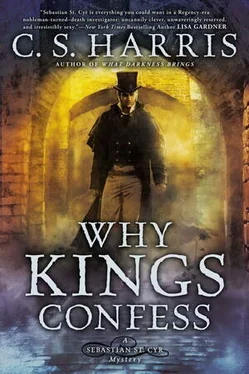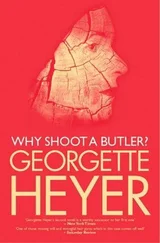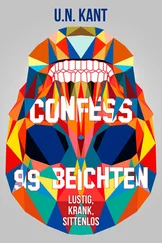C. Harris - Why Kings Confess
Здесь есть возможность читать онлайн «C. Harris - Why Kings Confess» весь текст электронной книги совершенно бесплатно (целиком полную версию без сокращений). В некоторых случаях можно слушать аудио, скачать через торрент в формате fb2 и присутствует краткое содержание. Год выпуска: 2014, Издательство: Penguin Group US, Жанр: Исторический детектив, на английском языке. Описание произведения, (предисловие) а так же отзывы посетителей доступны на портале библиотеки ЛибКат.
- Название:Why Kings Confess
- Автор:
- Издательство:Penguin Group US
- Жанр:
- Год:2014
- ISBN:нет данных
- Рейтинг книги:5 / 5. Голосов: 1
-
Избранное:Добавить в избранное
- Отзывы:
-
Ваша оценка:
- 100
- 1
- 2
- 3
- 4
- 5
Why Kings Confess: краткое содержание, описание и аннотация
Предлагаем к чтению аннотацию, описание, краткое содержание или предисловие (зависит от того, что написал сам автор книги «Why Kings Confess»). Если вы не нашли необходимую информацию о книге — напишите в комментариях, мы постараемся отыскать её.
Why Kings Confess — читать онлайн бесплатно полную книгу (весь текст) целиком
Ниже представлен текст книги, разбитый по страницам. Система сохранения места последней прочитанной страницы, позволяет с удобством читать онлайн бесплатно книгу «Why Kings Confess», без необходимости каждый раз заново искать на чём Вы остановились. Поставьте закладку, и сможете в любой момент перейти на страницу, на которой закончили чтение.
Интервал:
Закладка:
Sebastian watched the curls of wood shavings scatter in fragrant drifts. If Alexandrie Sauvage had been found with her head brutally beaten to a pulp, Bullock would have seemed the obvious suspect. But she was not the main target of Thursday night’s attack, and there was nothing to tie this brutish cabinetmaker to Damion Pelletan.
Sebastian should have been able to discount the possibility of the hulking tradesman’s involvement out of hand, for he could think of no logical reason why Bullock would have allowed Alexandrie Sauvage to live, only to vent his wrath on her unknown French companion, instead.
Yet Sebastian could not discount him. There was a rank odor of malevolence about the man, an ugly gleam in his small black eyes that Sebastian recognized, for he had seen it before. Men like Sampson Bullock didn’t simply exploit their extraordinary size and strength; they reveled in the fear it inspired in others, and they used that fear to bully and intimidate their way through life. And when the intimidation failed to achieve its intended result-or sometimes when they were simply feeling particularly mean-they killed.
And they enjoyed it.
Chapter 19
A t five minutes after ten, Sebastian stood near the gates of the Carlton House Gardens and watched as the French clerk, Camille Bondurant, strode purposefully up the Mall, his arms swinging, his features wearing the blank expression of a man whose thoughts are far, far away. He wore a heavy, drab greatcoat with a thick scarf knit of shockingly blue wool wrapped around his throat; his exhalations left little white puffs in the cold air that drifted away into nothing.
Once a long sweep of crushed shells where the kings of England were fond of playing a French game called palle maille , the Mall lay to the north of St. James’s Park. A broad gravel walkway planted with rows of lime and elm, it was mirrored on the far side of the park by what was known as Birdcage Walk. Due to its proximity to the Gifford Arms, Birdcage Walk would have seemed the more logical choice for a resident of the inn in search of exercise. But that walkway had a reputation that must have inspired Bondurant to avoid it.
“Bracing day for a walk,” said Sebastian, falling into step beside him.
The Frenchman cast Sebastian a quick glance and kept walking. He was a tall, cadaverously thin man with greasy black hair and a rawboned face. His eyes were nearly lashless and squinted, either from habit or in an effort to see Sebastian more clearly. “Do I know you?” he asked, his English guttural and heavily accented.
“I was at Damion Pelletan’s funeral.”
“I do not recall seeing you.”
“Probably because you were reading,” said Sebastian pleasantly.
The clerk drew up and swung to face him. “What do you want from me?”
“You do realize that Pelletan was murdered, don’t you?”
“Of course I realize it! What do you take me for? A fool?”
“Do you know why he was killed?”
“Because he was unwise enough to venture into a dangerous section of an unfamiliar city at night? Because he was French? Because someone took exception to the cut of his coat? How should I know? And I fail to see how it is any of your affair anyway.”
“Had he quarreled with anyone recently?”
“Pelletan? With whom would he quarrel? The man had no opinions on anything of importance that I could discern. Try to engage him in a discussion of Rousseau or Montesquieu, and all he would do is laugh and say that the philosophical speculations of dead men were of no interest to him.”
“So what did interest him?”
“The sick-especially the poor ones.” Bondurant’s face twisted with contempt. “He could become quite maudlin.”
“You’re not fond of philanthropy, I take it?”
“No, I am not. The sooner the poor are allowed to die off, the better for society. Why encourage them to procreate?”
“Kings and emperors need to get their soldiers from somewhere,” said Sebastian.
“True. The lower orders are at least good for cannon fodder.”
“Something the Emperor Napoleon seems to go through at an astonishing rate.”
Bondurant pursed his large mouth into a terse expression. “What has any of this to do with me?”
“You know of no one who would want to kill Pelletan?”
“I believe I already answered that question.” He tightened his scarf around his neck. “Now you must excuse me. You have interrupted my constitutional.”
And he strode off, arms swinging, head down, as if battling a strong wind or reading a book that was no longer there.
• • •
Sebastian’s next stop was the Sultan’s Rest, a coffeehouse on Dartmouth Street popular with the military men of the area.
He found the comfortable, oak-paneled room thick with tobacco smoke and filled with red-coated officers all talking and laughing at once.
The French colonel, Foucher, sat by himself in one corner, inconspicuous in his dark coat and modest cravat. His head was bent over a newspaper opened on the table before him; a cup of coffee rested at his elbow. But Sebastian knew by a certain subtle alertness about his person that the Frenchman’s attention was focused more on the conversations swirling around him than on the page before him.
Working his way across the crowded room, Sebastian pulled out the chair opposite the colonel. “Mind if I have a seat?”
The colonel looked up, his hazel eyes blinking several times. “Would it stop you if I did?” he asked, leaning back in his own chair as Sebastian sat down.
The Frenchman was tall and well built, although illness and injury had left him thin and his face sallow. Sebastian could see scattered strands of white in his sandy hair and thick mustache; lines dug deep by weather and endured pain fanned the skin beside his eyes.
Sebastian cast a significant glance around the crowded room. “Popular place.”
“It is, is it not?”
“I assume that’s why you come here?”
A slow gleam of amusement warmed the other man’s gaze. “I find I enjoy the company of military men, whatever their uniform.”
“I hear you were in Russia.”
“Yes.”
“There aren’t many who staggered out of that fiasco alive. With the exception of Napoleon himself, of course.”
“No.”
Sebastian rested his forearms on the tabletop and leaned into them. “Let’s get over rough ground as quickly as possible, shall we? I know why Vaundreuil is here. What I don’t know is why someone would stab Damion Pelletan in the back and cut out his heart. The most obvious reason would be to disrupt your mission. The mutilation of the corpse seems rather macabre, but it could be a subtle warning directed at Monsieur Vaundreuil, who I understand suffers from a heart condition.”
The colonel took a slow sip of his coffee and said nothing.
“Then again,” said Sebastian, “Pelletan could have been killed because he had in some way become a threat to the success of your mission.”
“Is that why you are here? Because you consider me a reasonable suspect?”
“You don’t think you should be?”
Foucher eased one thumb and forefinger down over his flaring mustache. “If he had simply been killed, I could see that, yes. But the very flamboyance of his murder tends to work against such an argument, does it not?”
“It does. Unless the killer were fueled by anger or the kind of bloodlust one sometimes sees on the battlefield.” Sebastian let his gaze drift around the noisy room. “We’ve both known men who enjoy mutilating the bodies of their fallen enemies.”
Again the colonel sipped his coffee and remained silent.
Sebastian said, “There is of course a third possibility: that Pelletan was killed for personal reasons. It’s unlikely, given that he was only in London for three weeks. But it is still an option.”
Читать дальшеИнтервал:
Закладка:
Похожие книги на «Why Kings Confess»
Представляем Вашему вниманию похожие книги на «Why Kings Confess» списком для выбора. Мы отобрали схожую по названию и смыслу литературу в надежде предоставить читателям больше вариантов отыскать новые, интересные, ещё непрочитанные произведения.
Обсуждение, отзывы о книге «Why Kings Confess» и просто собственные мнения читателей. Оставьте ваши комментарии, напишите, что Вы думаете о произведении, его смысле или главных героях. Укажите что конкретно понравилось, а что нет, и почему Вы так считаете.












